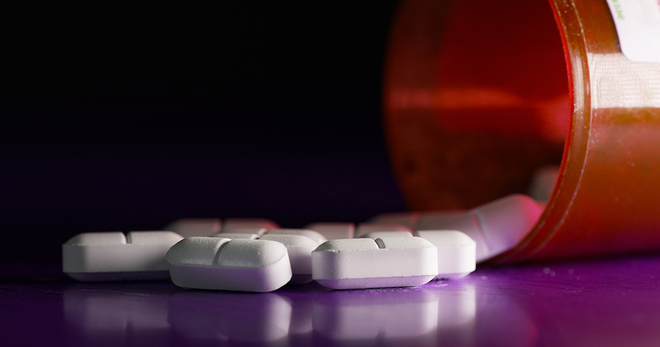New youth prescription drug safety curriculum launches nationwide
Middle and high school educators are facing the growing youth fentanyl and prescription drug misuse crisis, with campuses nationwide providing the medication naloxone to respond to student overdoses.
Overdose deaths by counterfeit pills more than doubled from 2019 to 2021, and over half of the people who died were age 35 or younger, according to the Centers for Disease Control and Prevention. Fentanyl, a potent synthetic opioid, was involved in 84% of the 2,200+ cases of reported adolescent drug overdose deaths that occurred from 2019 to 2021. Young Americans are especially vulnerable to misunderstanding the risks associated with opioid misuse, addiction, and the dangerous spiral down from prescription to illicit use. Schools play an important role in reaching students with the facts they need to make informed choices.
Prescription Drug Safety: Know the truth is a free digital course – from the nationally recognized, evidence-based youth tobacco and opioid prevention truth® campaign and the leading social impact education innovator EVERFI – that guides teachers and educates youth about the dangers associated with misusing prescription medications, including counterfeit drugs containing fentanyl. Through real-world scenarios delivered in truth’s authentic peer-to-peer voice, students can better understand the growing youth fentanyl crisis and how to support others in situations involving prescription drug misuse and overdose.
Expected to reach 250,000 students nationwide this school year
A recent study of EVERFI's Prescription Drug Safety course showed strong evidence that this type of digital curriculum is effective in promoting prescription drug safety skills in students. The study found that the digital curriculum showed a positive impact on behavioral intent and attitudes as it relates to prescription drug use across all genders, races, and other demographic characteristics.
More than 1 million learners across the country have completed the prescription drug safety curriculum since EVERFI originally launched it in 2017. Now updated with two new lessons addressing the proliferation of counterfeit pills and drug trafficking on social media, Prescription Drug Safety: Know the truth is expected to reach 250,000 middle and high school students nationwide during the 2023-2024 school year.
“Truth Initiative is proud to share our expertise in creating public health messaging aimed at youth to provide real impact to address the urgent fentanyl and prescription drug misuse crisis, which is derailing the lives of young people across the country at alarming rates,” said Robin Koval, CEO and President of Truth Initiative. “Prescription Drug Safety: Know the truth builds on the success of our already proven Vaping: Know the truth curriculum which has been used by nearly 1 million students to date.”
Campaign proven to increase knowledge about opioid misuse
Vaping: Know the truth – the first collaboration between Truth Initiative and EVERFI – provides students with facts on the health risks of e-cigarettes and nicotine use. It also offers resources to help young people who are currently using e-cigarettes to quit through truth’s first-of-its-kind text message quit vaping program, This is Quitting, which has inspired more than 600,000 youth and young adults to quit e-cigarettes. Peer-reviewed research shows that Vaping: Know the truth significantly improved middle and high school students’ knowledge about e-cigarettes. Beginning January 2024, the curriculum will include a module on cannabis vapes.
Using its proven-successful tobacco prevention strategy – giving young people the facts and empowering them to make their own decisions – Truth Initiative developed the Emmy Award-winning The Truth About Opioids campaign, which effectively increased knowledge about opioid misuse, decreased stigma, and increased the likelihood to seek out and share information in young people. These published findings of the campaign’s effectiveness underscore the importance of public education and prevention – alongside emergency response, treatment and recovery – in the comprehensive effort to combat the crisis.
“Given the devastating consequences of the opioid epidemic,” wrote the authors of the study, “now is the time to mount a comprehensive prevention effort to help reduce opioid misuse among young people.”



